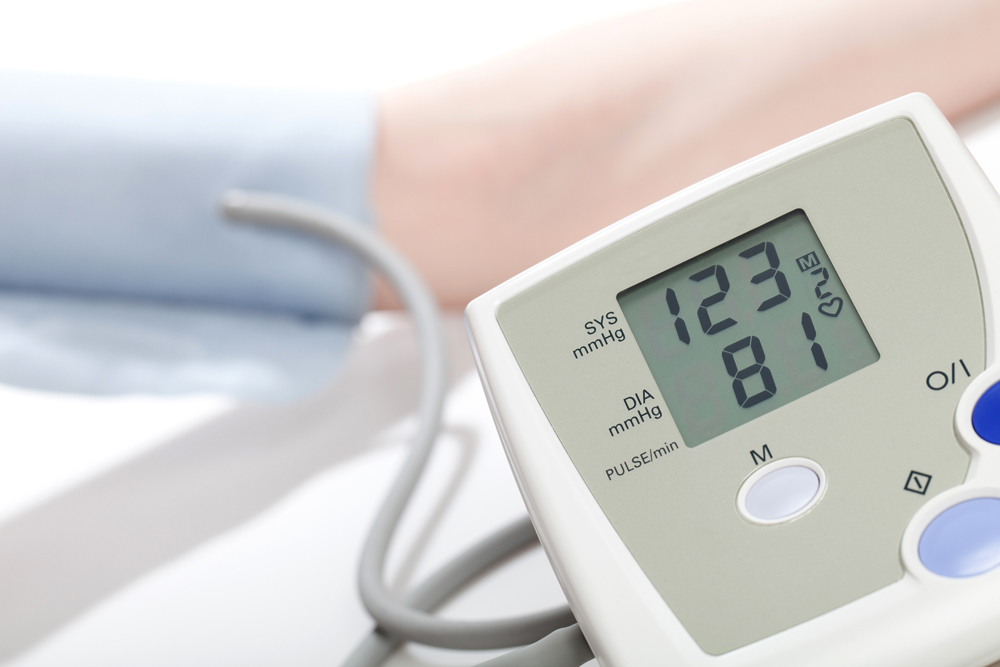What is high blood pressure
Blood pressure is the pressure of your blood on the walls of your blood vessels and heart as it pumps blood around the body. High blood pressure (also known as hypertension) occurs when your blood pressure is persistently higher than normal.
Your blood pressure naturally fluctuates up and down all the time, adjusting to the needs of your body and activity. An optimal blood pressure is around 120/80mmHg. Readings that are persistently over this are known as high blood pressure.
What causes high blood pressure?
Often, the cause of high blood pressure is unknown. However, some things that can increase your risk factors, including:
-
Family history of high blood pressure
-
Eating patterns, including salty foods
-
Alcohol intake
-
How much physical activity you do
Occasionally, some medications can increase your blood pressure.
Why is having high blood pressure bad?
High blood pressure can lead to heart disease, stroke, kidney and diseases of your blood vessels.
The following factors also increase your risk of complications associated with high blood pressure:
-
Having high blood cholesterol
-
Being overweight
-
Having diabetes
How do I know if I have high blood pressure?
Often you don’t know if your blood pressure is high. There are usually no symptoms, which is why its important to get it checked.
Your doctor may ask you to monitor your blood pressure at home, or wear a monitor over a 24 hour period to check how it varies, because it is not possible to diagnose high blood pressure with one isolated reading – this is because it can be falsely elevated, e.g. if you are stressed or have just been rushing or had a lot of coffee.
What happens if I do have high blood pressure?
If you are diagnosed with high blood pressure by your doctor, they will discuss varying levels of management with you depending on your health and past medical history.
Your doctor may recommend lifestyle changes such as changing the food you eat, increasing your level of exercise, reducing your alcohol intake and rate of smoking, and reducing your weight if required.
Many people also need medications to control their blood pressure. Your doctor will tell you if you need to take medications and monitor its effects. These medications do not cure your high blood pressure, but they help to control it. It is important to continue to take the medications regularly to keep your blood pressure under control and reduce complications.
If you are placed on medications, it is important to also maintain a healthy lifestyle too.
What now?
Ask your GP to check your blood pressure next time you have an appointment. If you are concerned that you may have high blood pressure, or you have some of the other risk factors associated with diseases caused by high blood pressure, book an appointment with one of our GPs to get your blood pressure checked and discuss how to reduce your risk of heart disease, stroke and kidney disease.
References
Department of Health, date unknown, High Blood Pressure, Government of Western Australia, retrieved online 3/5/17, < http://healthywa.wa.gov.au/Articles/F_I/High-blood-pressure >
Heart Foundation 2017, Blood Pressure, Heart Foundation, retrieved online 3/5/17, < https://www.heartfoundation.org.au/your-heart/know-your-risks/blood-pressure >
Medical information disclaimer:
No advice: Our website contains general medical information. The medical information is not advice and should not be treated as such.
No warranties: The medical information on our website is provided without any representations or warranties, express or implied. Without limiting the scope above, we do not warrant or represent that the medical information on this website: will be constantly available, or available at all; or is true, accurate, complete, current or non-misleading.
Medical assistance: You must not rely on the information on our website as an alternative to medical advice from your doctor or other professional healthcare provider. If you have any specific questions about any medical matter, you should consult your doctor or other professional healthcare provider. If you think you may be suffering from any medical condition, you should seek immediate medical attention. You should never delay seeking medical advice, disregard medical advice or discontinue medical treatment because of information on our website.
Interactive features: Our website includes interactive features that allow users to communicate with us. You acknowledge that, because of the limited nature of communication through our website’s interactive features, any assistance you may receive using any such features is likely to be incomplete and may even be misleading. Any assistance you may receive using any our website’s interactive features does not constitute specific advice and accordingly should not be relied upon without further independent confirmation.
Limits upon exclusions of liability: Nothing in this disclaimer will: limit or exclude any liability for death or personal injury resulting from negligence; limit or exclude any liability for fraud or fraudulent misrepresentation; limit any liabilities in any way that is not permitted under applicable law; or exclude any liabilities that may not be excluded under applicable law.
Credit:This document was created using a template from SEQ Legal (http://www.seqlegal.com).

